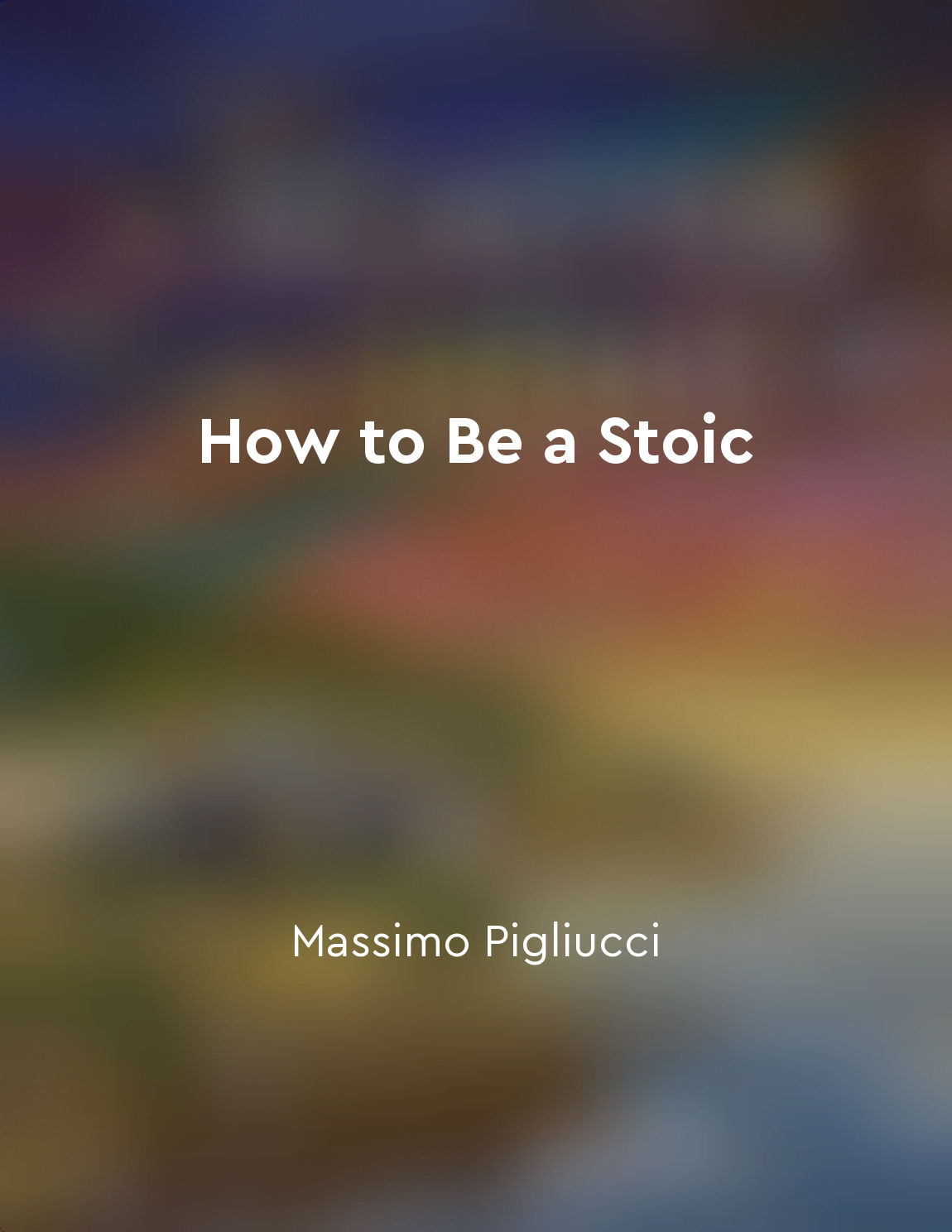Develop emotional resilience through Stoic principles from "summary" of Stoic Spiritual Exercises by Elen Buzaré
Emotional resilience is a crucial aspect of our mental well-being. It allows us to navigate the ups and downs of life without being overwhelmed by negative emotions. Stoic principles offer a valuable framework for developing this resilience. By embracing Stoicism, we can learn to cultivate a mindset that is better equipped to handle life's challenges. Stoicism teaches us to focus on what is within our control and let go of what is not. This emphasis on acceptance and detachment can help us respond to difficult situations with greater equanimity. Instead of getting caught up in our emotions, we can learn to step back and assess the situation rationally. This shift in perspective can prevent us from being consumed by anger, fear, or sadness. Another key Stoic principle is the practice of negative visualization. By imagining the worst-case scenario, we can prepare ourselves for adversity and develop a sense of gratitude for what we have. This exercise helps us to appreciate the present moment and cultivate a sense of resilience in the face of challenges. Stoicism also emphasizes the importance of self-discipline and self-control. By practicing moderation and avoiding excess, we can strengthen our willpower and resist the pull of instant gratification. This ability to delay gratification can help us cope with setbacks and stay focused on our long-term goals.- Stoicism offers a holistic approach to emotional resilience. By incorporating Stoic principles into our daily lives, we can cultivate a mindset that is calm, rational, and resilient. This ancient philosophy provides us with a timeless wisdom that can help us navigate the complexities of modern life with grace and fortitude.
Similar Posts
Cultivate virtues such as wisdom, courage, and justice
The Stoics believed that the key to living a good life was to cultivate virtues such as wisdom, courage, and justice. These vir...

The Stoic life is one of inner strength and resilience
The Stoic life is centered around the cultivation of inner strength and resilience. Stoicism teaches individuals to face challe...

Cultivate a sense of humility and acceptance of your limitations
To be a Stoic means to recognize and acknowledge our own limitations. It means coming to terms with the fact that we are fallib...

Embrace adversity as an opportunity for growth
When faced with adversity, it is natural to feel discouraged or overwhelmed. We tend to view challenges as obstacles that hinde...
Practicing moderation and selfcontrol leads to a balanced and harmonious life
Moderation and self-control are essential virtues that the Stoics believed to be crucial for leading a balanced and harmonious ...
Stoicism emphasizes the power of the mind over external circumstances
Stoicism teaches us that the mind is a powerful tool that can help us navigate the challenges we face in life. Instead of being...
The Stoics believed in living according to nature
The Stoics believed that human beings are rational animals capable of understanding the world around them through reason. They ...
Emotional intelligence is a key component of Stoic philosophy
Margaret Graver delves deep into the intersection of emotional intelligence and Stoic philosophy in her book "Stoicism and Emot...
Practice selfawareness and reflection
To be a Stoic means to constantly practice self-awareness and reflection. This is not an easy task, as it requires a deep under...
Stoics believe in the inherent goodness of humanity
The Stoics hold a deep-seated belief in the essential goodness of human nature. According to their philosophy, humans are inher...

